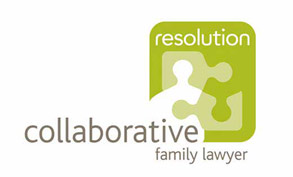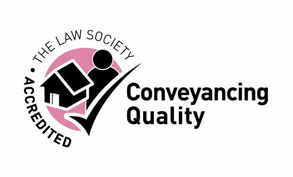Day: 31 October 2024
Foreign Assets and Wills: What You Need to Know
When planning your estate, one critical aspect to consider is the management of foreign assets. There has been an increase in the mobility of the population with more accessibility to travel around the world and also move to live in different countries on a temporary or permanent basis.
As globalization increases, many individuals find themselves owning property or financial investments outside their home country. Understanding how to include these assets in your will is essential for effective estate planning. It also increases both the importance and complexity of having a Will in place.
Understanding Foreign Assets
Foreign assets can include real estate, bank accounts, investments, and other valuables located outside your country of residence. These assets may be subject to different laws and regulations, making it crucial to address them specifically in your will.
For example, if you have a holiday home or property in another country, would you know what would happen to that property on your death? If you are living abroad on a temporary basis and have a bank account in another country, do you know what would happen to that bank account on death and how your loved ones would obtain those funds?
Legal Considerations
1. Jurisdiction: Different countries have varying laws regarding inheritance, taxation, and property rights. The jurisdiction where the asset is located will often govern its disposition. For example, a property in France will be subject to French inheritance laws.
2. Conflict of Laws: If your home country and the foreign country have conflicting laws regarding inheritance, this can complicate the distribution of your assets. It’s important to consult legal experts in both jurisdictions to navigate these issues.
3. Tax Implications: Foreign assets may be subject to taxes both in your home country and the country where the assets are located. Understanding these tax obligations is crucial for effective estate planning and can affect the net value of the assets passed on to heirs.
Including Foreign Assets in Your Will
1. Specific Bequests: Clearly specify any foreign assets in your will. Use precise descriptions, including location, type of asset, and any relevant account numbers. This minimizes ambiguity and ensures that your intentions are clear.
2. Multiple Wills: In some cases, it may be advisable to create separate wills for different jurisdictions. This can simplify the process of administering your estate in each country, although you must ensure that these wills do not conflict with each other. It will be important to inform any legal advisors or solicitors that you are speaking to, if you already have a Will in place so that if another Will is required in another country, then they can ensure that they don’t revoke the Will you already have in place. The legal advisor would also be interested in seeing a copy of any current Will in place so that they can make sure that they have all the information.
3. Local Legal Advice: Engaging a local attorney familiar with the laws governing inheritance in the country where the asset is located can be invaluable. They can provide guidance on how to structure your will to comply with local laws. It is highly recommended to speak to a legal advisor in that country so that they can advise you on the inheritance laws, any tax advice and whether you need to have a Will in that country.
4. Updating Your Will: Regularly review and update your will, especially after significant life changes (e.g., marriage, divorce, birth of children) or changes in asset ownership. This ensures that your estate plan remains aligned with your current circumstances.
The Role of Trusts
In some cases, utilizing trusts can be an effective way to manage foreign assets. Trusts can offer benefits such as:
• Privacy: Trusts are not typically subject to probate, allowing for a more private distribution of assets.
• Control: Trusts can provide specific instructions on how and when assets are distributed to heirs, which can be particularly useful for minor children or beneficiaries with special needs.
• Tax Efficiency: Depending on the structure of the trust, it may offer tax advantages in certain jurisdictions.
Conclusion
Incorporating foreign assets into your estate planning is a complex but necessary task. By understanding the legal landscape, consulting with professionals in relevant jurisdictions, and clearly articulating your wishes in your will, you can ensure that your foreign assets are managed according to your intentions. Careful planning not only protects your assets but also provides peace of mind for you and your heirs.
Our team at Baines Bagguley Penhale have the relevant expertise and experience, to provide you with appropriate advice.
For further information please visit our website at www.bbpsolicitors.co.uk. Or contact us for further information on 01524 401010.
What is Testamentary freedom?
Testamentary freedom is a right for a person to decide what they would like to happen to their estate using a Will without any restrictions, rules or legal obligations on what they can do with their estate. In England and Wales, everyone has testamentary freedom to make decisions about who inherits their estate including bank accounts, properties, investments, shareholdings or valuables.
This is different to the Rules of Intestacy which are a part of the laws in England and Wales, and these set out what happens to a person’s estate if they don’t have a valid Will in place at the time of their death.
However, testamentary freedom is not available in every country or jurisdiction and there are lots of countries around the world that have legislation and laws which dictate who can inherit from your estate.
Also, when you are considering making a Will and the testamentary freedom to decide how you want to estate your estate to go, there are a couple of things that you need to consider and be aware of.
Firstly, there are certain assets that may pass by the rules of survivorship. Survivorship is where an asset is held jointly, and it automatically pass outside of your estate to the surviving joint owner on your death. The assets that usually pass by survivorship are joint banks accounts and property held jointly as joint tenants.
Secondly, if certain individuals feels that they have not been adequately financially provided for in a Will then they could look to make a claim under The Inheritance (Provision for Family and Dependants) Act 1975. This allows certain individuals to claim a share of a deceased person’s estate, even if they were not included in the will or if the estate did not provide for them adequately. Here are some key points about making a claim under this Act:
Eligible Claimants
1. Spouse or Civil Partner: A husband, wife, or civil partner can claim if they feel they haven’t received reasonable financial provision.
2. Former Spouse or Civil Partner: They may claim if the marriage or civil partnership has not been formally dissolved.
3. Children: Biological and adopted children can make a claim, regardless of age.
4. Dependants: Individuals who were financially dependent on the deceased (e.g., cohabitants) may also claim.
Grounds for Claiming
• Lack of Reasonable Financial Provision: Claimants must demonstrate that the provision made for them is inadequate.
• Financial Needs: The court considers the claimant’s financial situation and needs, as well as the deceased’s obligations and responsibilities.
Time Limits
• Claims must generally be made within six months of the grant of probate or letters of administration.
Court Considerations
When assessing claims, the court takes into account:
• The deceased’s intentions (as expressed in the will or other communications).
• The financial needs of the person making the claim.
• Any other relevant circumstances, including the size of the estate and the needs of other beneficiaries.
Process
1. Filing a Claim: A formal application must be submitted to the court.
2. Mediation: Parties are often encouraged to resolve disputes through mediation before proceeding to court.
3. Court Hearing: If mediation fails, the case may go to a court hearing where evidence is presented.
Therefore, this highlights the importance of making a Will and estate planning, the benefits of seeking legal advice so that you can ensure that you have considered all the factors.
Our team at Baines Bagguley Penhale have the relevant expertise and experience, to provide you with appropriate advice.
For further information please visit our website at www.bbpsolicitors.co.uk. Or contact us for further information on 01524 401010.







